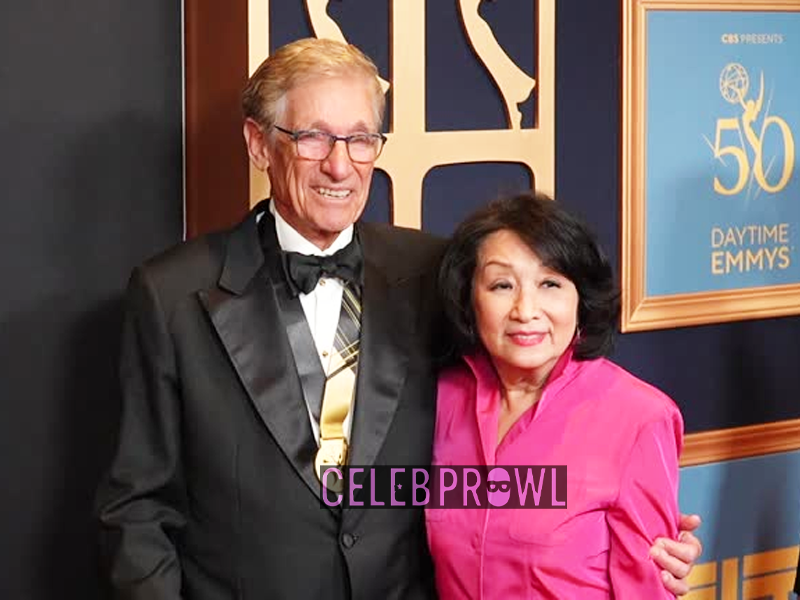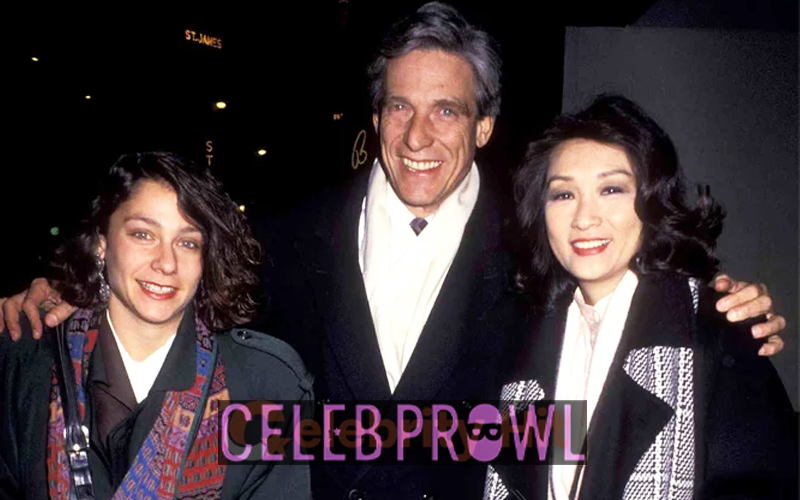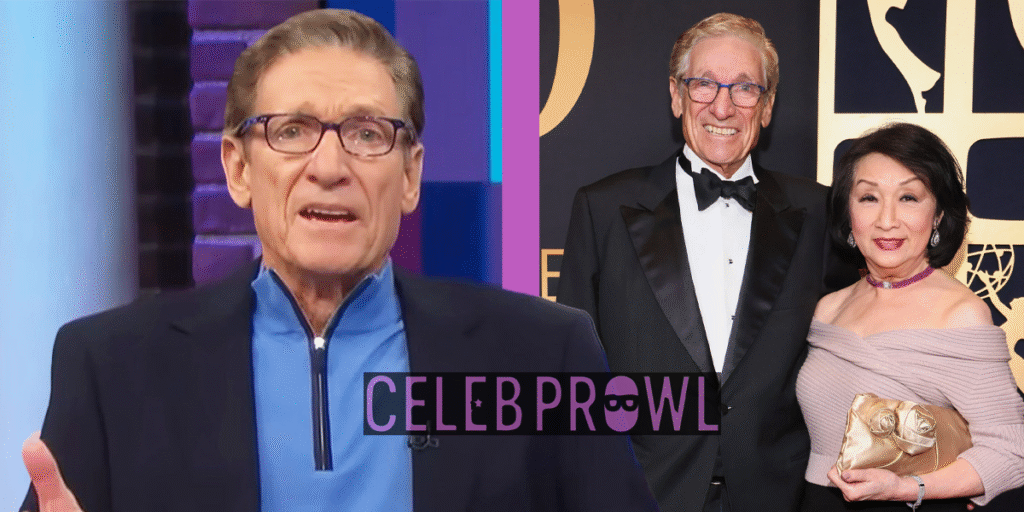Phyllis Minkoff is a name that often surfaces when discussing the early life of television icon Maury Povich. While her former husband became a household name through his decades-long talk show career, Phyllis Minkoff chose a quieter, more private life away from the spotlight. Her story, however, remains deeply woven into the early years of Povich’s rise to fame. Born in the United States, Minkoff’s personality, intellect, and grace made her an intriguing figure even long after her divorce. This article delves deep into her background, her marriage, her children, and what life looks like for her today. Despite limited public appearances, Phyllis Minkoff continues to be remembered as an elegant and intelligent woman who once shared a major chapter of life with one of America’s most recognizable television personalities.
Quick Bio
| Field | Detail |
| Full Name | Phyllis Minkoff |
| Date of Birth | February 15, 1941 |
| Place of Birth | Washington, D.C., U.S.A. |
| Parents | Hyman Joseph Minkoff (father), Ida Minkoff (mother) |
| Sibling(s) | Brother: Larry Minkoff |
| Profession | Communications / Public Relations Expert |
| First Spouse | Maury Povich (m. 1962 – div. 1979) |
| Second Spouse | Phillip Baskin (m. 1980 – until his death in 2005) |
| Children | Susan Anne Povich, Amy Joyce Povich, Shoshana Nudel, Janice Gondelman |
| Residence (later) | Greater Pittsburgh / Pennsylvania area |
| Known for | Being Maury Povich’s first wife; activism, communications work |
| Estimated Net Worth | ~ USD $1 million (public estimates) |
Early Life and Family Background
Phyllis Minkoff was born on February 15, 1941 in Washington, D.C. to parents Hyman Joseph Minkoff and Ida Minkoff. Her father was an entrepreneur who owned a liquor store business known as Acme Liquors, and the family environment was grounded in business and modest affluence. She grew up with one sibling, a brother named Larry Minkoff. Though details about her schooling are not widely published, growing up in the nation’s capital likely exposed her to political and media influences from a relatively young age. The milieu of Washington, D.C. perhaps shaped her later interest in communications and public relations. In her youth, she would have observed the dynamics of power, media, advocacy, and society at large, which might have planted seeds for her eventual professional path. The values instilled by her parents—hard work, discretion, social awareness—appear to have stayed with her even after entering public life. Her upbringing was not in constant spotlight; she led a relatively private childhood, cultivating a persona that later balanced public presence with privacy. Over time, she carried the influence of her family roots into her adult endeavors in communications, activism, and managing public narratives.
Meeting Maury Povich
The story of Phyllis Minkoff’s meeting with Maury Povich is somewhat private in public records, but we do know that their connection emerged during the early 1960s. At that time, Maury Povich was an aspiring journalist and broadcaster trying to establish himself in local news and media circuits. Phyllis and Maury likely encountered one another within social, academic, or media-adjacent circles, given their mutual interests in communications, public affairs, and media. Their bond deepened, leading them to commit to a life together. In August 1962, they officially married, cementing that early partnership into a formal union. The match would fuse Phyllis’s emerging talents in communication with Maury’s ambitions in broadcasting. Although the exact moments and conversations of their meeting remain under wraps, what is clear is that their early years together were formative and intertwined with the trajectories of their personal and professional lives. Their union spanned nearly two decades, suggesting that their initial connection was strong enough to weather many seasons of life together before eventual changes arose.

Marriage to Maury Povich
Phyllis Minkoff and Maury Povich exchanged wedding vows in 1962, beginning a marriage that would last for 17 years until their divorce in 1979. During the early years of their marriage, Maury’s career in journalism and TV news was evolving. He worked in major market local news, gradually building a reputation. Phyllis supported and navigated alongside him during those years, managing the demands of public life and private family. Together, they welcomed two daughters: Susan Anne Povich (born circa 1963) and Amy Joyce Povich (born 1967). Balancing career and family life in a time before modern supports and public attention would have demanded coordination, compromise, and strength. The pressures and shifts in Maury’s career trajectory may have affected their relationship dynamics. By the late 1970s, their needs and paths diverged increasingly, and in 1979 they formally divorced. While details of the split remain largely private, speculation links the strains of public ambition, evolving personalities, and life direction as contributing factors. Although their marriage ended, both Phyllis and Maury continued with their lives in separate directions, each maintaining a bond to their daughters and legacies from that chapter.
Life After Divorce
Following her divorce from Maury Povich in 1979, Phyllis Minkoff embarked on the next chapter of her life. In 1980, she married Phillip Baskin, a lawyer and Pittsburgh city councilman, thereby relocating or grouping her life more into the Pittsburgh / Pennsylvania region. With Baskin, Phyllis had two additional daughters: Shoshana Nudel and Janice Gondelman, expanding her family to four children in total. The marriage to Baskin lasted until his unfortunate death in 2005, which was due to complications from Alzheimer’s disease. During these years, Phyllis continued her work in the communications and public relations realm, occasionally stepping into public or political advocacy roles. She maintained a somewhat lower profile than in her first marriage, favoring discretion and privacy while still supporting causes she believed in (such as women’s rights, nonprofits, and political activism). The years after divorce also allowed her to recalibrate her identity outside of being “Maury Povich’s wife,” asserting a more independent path. Following her second husband’s passing, she remained a widow, focused on family, her own projects, and maintaining dignity in her personal and public spheres.
Her Children: Susan Anne and Amy Povich
From her marriage with Maury Povich, Phyllis Minkoff is mother to two daughters: Susan Anne Povich and Amy Joyce Povich. Susan Anne pursued a path merging law, food, and entrepreneurship: she studied law (Harvard Law), then transitioned to a role as a restaurateur and chef, co-founding Red Hook Lobster Pound in Brooklyn, and balancing family life with business ownership. Amy Joyce Povich gravitated more toward the performing arts: she studied drama at Yale, engaged in acting roles in television and film (e.g. Law & Order, Sex and the City, Transamerica, Labor Pains), and married acclaimed physician and author David Agus in 1994. Together, Amy and David have children and a life largely out of tabloid spotlight. The daughters grew up observing the complexities of public life, their parents’ separation, and the balancing act of personal identity and parental legacy. Phyllis and Maury both made efforts to maintain parental roles despite the divorce. Over the years, each daughter carved her own path, bridging public respect, professional success, and family life.
Relationship with Maury Povich After Divorce
Even after their official separation, Phyllis Minkoff and Maury Povich maintained a connection rooted in co-parenting and sharing two daughters. While there is no public record of a deeply close friendship, they appeared to respect boundaries and the responsibilities of parenthood. Maury later married Connie Chung in 1984, and with Connie he adopted a son, Matthew Jay Povich, in 1995. Maury’s new marriage and life likely reduced overlap with Phyllis except in matters related to their children. In his reflections, Maury acknowledged that his intense focus on career sometimes came at the expense of his marriage and family time—admissions that suggest a level of introspection about his first marriage. Over time, their relationship settled into a more muted, private co-parenting model, with mutual respect for their daughters’ welfare. There’s little public comment or reported conflict, which may reflect both parties’ preference to keep their private interactions low in public view.

Personality and Private Life
Phyllis Minkoff has often been portrayed (in limited public accounts) as discreet, poised, articulate, and socially aware. Her professional domain in communications and public relations suggests she is a thoughtful communicator, someone attuned to messaging, perception, and the delicate balance between private life and public persona. She doesn’t appear to court limelight, choosing instead to maintain boundaries in personal matters. Her advocacy for women’s causes, affiliation with the Women’s Liberation Front, and support for political candidates (such as Hillary Clinton, Bernie Sanders, Joe Kennedy III) indicate a personality engaged in civic life and not afraid to take positions on social issues. In private, she has managed the challenges of blending family, high expectations, public associations, and her own goals. She has weathered loss (the death of her second husband), transitions (divorce, remarriage), and evolving identity across decades. She values privacy, self-respect, and dignity; she does not appear to have courted scandal or sensational exposure. Over time, her persona is that of a quiet force—someone whose influence is subtle yet rooted in substance.
Impact and Legacy
Though Phyllis Minkoff is less widely known than her ex-husband, her life bears significance in several ways. First, she demonstrated that a woman married to a rising media personality could still retain agency, professional identity, and personal convictions. She forged a career in communications and brought activism and advocacy into her life, rather than simply being defined by her marriage. Second, through her support for women’s causes, nonprofit work, and political engagement, she has left traces in social spheres—showing that influence need not always be center stage. Third, as a mother of four and a co-parent navigating divorce and blended family dynamics, she has contributed to understandings of how public figures manage family and transitions. Fourth, her legacy reminds observers that spouses of famous individuals can have their own paths, manage privacy, and choose dignity over spectacle. Lastly, in the public memory, she serves as a reminder that many lives tied to fame still carry stories, efforts, and values that deserve recognition beyond being “ex-spouse of a celebrity.”
Conclusion
Phyllis Minkoff is more than just a footnote in Maury Povich’s life story. She is a person shaped by family, personal ambition, communication, advocacy, and parenting. Her early years in Washington, D.C. set a foundation; her marriage to Maury Povich brought public association and shared history; her life after divorce proved her resilience, independence, and capacity for renewal. Her children, her causes, her work in communications, and her choices reflect a multifaceted personality. Though she prefers privacy, the contours of her life speak of strength, dignity, and purpose. In exploring her story, we gain insight into the challenges and opportunities of being beside—and then apart from—a famous partner, while striving to preserve one’s own identity. Phyllis Minkoff’s legacy is that of a woman who navigated transitions with grace and left a quiet but enduring imprint.
Must Read The Article: Who Is Eian Burton? All You Need to Know About LeVar Burton’s Son
Frequently Asked Questions
- Who is Phyllis Minkoff?
Phyllis Minkoff is an American communications and public relations expert best known as the first wife of TV personality Maury Povich. - When was Phyllis Minkoff married to Maury Povich?
She was married to Maury Povich from 1962 until their divorce in 1979. - How many children does Phyllis Minkoff have?
She has four daughters: Susan Anne and Amy Joyce (with Maury Povich), and Shoshana Nudel and Janice Gondelman (from her second marriage). - Did Phyllis Minkoff remarry after her divorce?
Yes, she married Phillip Baskin in 1980. He was a lawyer and councilman. He passed away in 2005. - What is Phyllis Minkoff known for besides being married to Maury Povich?
Aside from her marriage, she is recognized for her professional work in communications/public relations, her advocacy for social causes (especially women’s issues), and her role as a mother and private figure of dignity.


